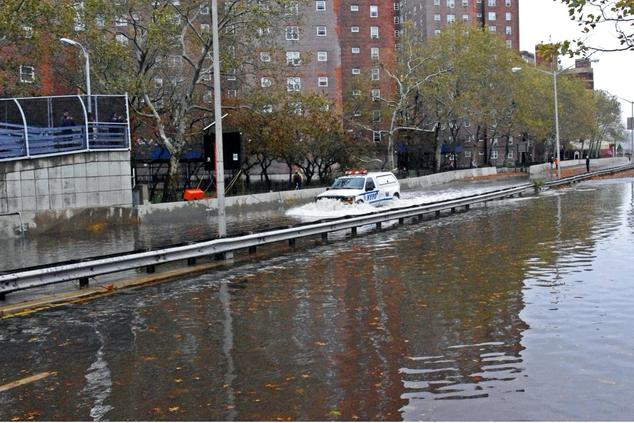
On the last day of the legislative session, the New York State Assembly passed legislation that requires landlords to tell potential renters a home’s flood risk and its flooding history. The Senate passed the bill earlier that week, so it is now headed to Gov. Hochul’s desk for signature.
If it is signed into law, New York will join only a handful of states (seven, according to this report) that give renters such rights.
This information deficit for renters is problematic, since flooding is the most common and expensive type of disaster in the United States. In addition, ongoing and future changes to the climate are increasing the likelihood for floods to cause displacement, injury and illness, loss of life, and damage to homes. Meanwhile and significantly, our nation’s history of redlining, segregation, and other forms of structural racism and discrimination has left communities of color and other marginalized people at higher risk of being exposed to flood risks.
As the author of the report above, Dan Mathis, notes:
“Renters are increasingly likely to be older, people of color, and living in nontraditional households, and the majority of the Black and Latinx population are renters. According to the Joint Center for Housing Studies, 58 percent of Black households rented their housing in 2019, along with 52 percent of Latinx households, 43 percent of Native American households, and 39 percent of Asian households.”
"These rental rates across demographics illustrate the importance of intentionally developing policies that protect renters in housing policy interventions broadly, but especially as they relate to the climate crisis, which is disproportionately hitting vulnerable communities and communities of color in so many ways."
Given the increasing risk of flooding and structural inequities concerning housing, renters must have the right to know if their potential home could flood. New York has taken an important step towards providing this right.
Renters in the Empire State will soon have the right to know whether a home is in a FEMA-designated floodplain and whether a home has experienced flood damage. Renters will also be informed that most renters insurance does not cover flooding and coverage instead can be obtained through the National Flood Insurance Program (NFIP). This is a huge win for renters given in New York City alone, there are approximately 180,000 small residential buildings, representing about 25% of all residential buildings in the city, which are vulnerable to future flooding.
So, kudos to New York for doing the right thing for renters - next, it must go further and extend the same right of disclosure to homebuyers. While New York technically requires a seller to disclose to a buyer a home’s flood risk, a major loophole exists. Under New York law, if a seller fails to provide a disclosure statement, he or she owes the buyer a $500 credit toward the purchase price at the closing (see N.Y. Real Prop. Law §465(1)). In practice, many New York sellers view this as an incredibly low penalty and opt to pay it rather than disclose the flood history. As a result, buyers there have the short end of the deal when it comes to learning about a property’s flood risks or past flood damages.